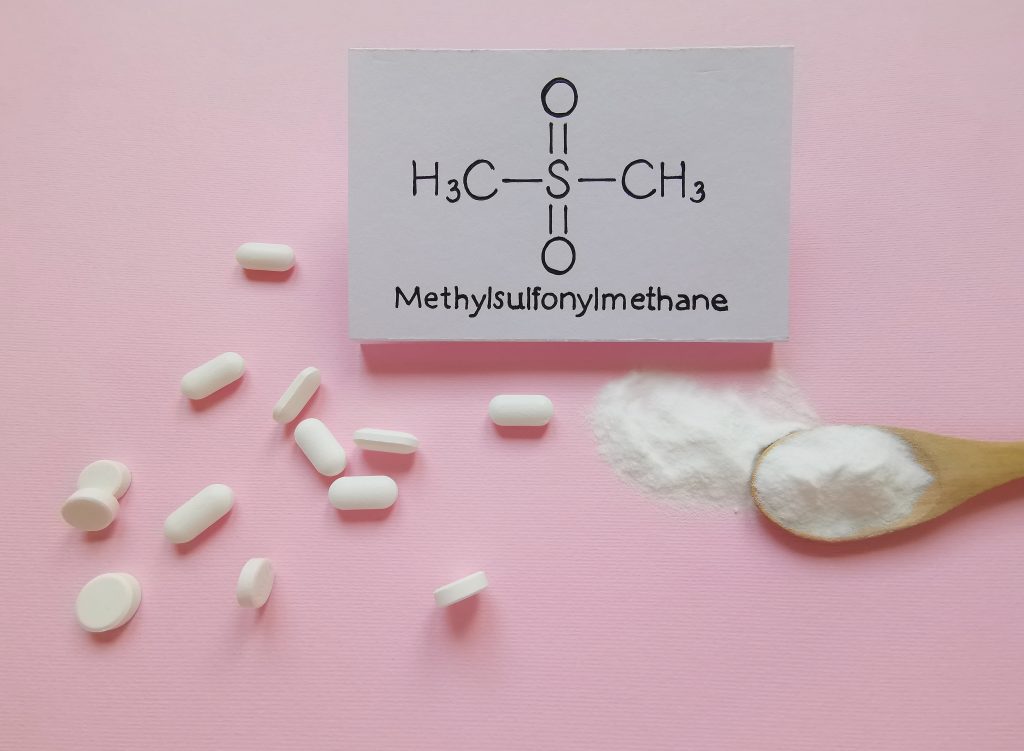Published on February 5, 2018. Last Updated on July 17, 2021.
A Natural Remedy For Hair Loss? Methylsulfonylmethane MSM Hair Growth: Hair loss affects millions in the United States every year. All across the nation, men and women are searching for ways to rectify hair loss and live more confidently. Recent studies surrounding methylsulfonylmethane hair growth proved positive for rodents treated for alopecia.
What is Methylsulfonylmethane?
Methylsulfonylmethane (MSM) is a compound present in plants, animals, and humans. The colorless substance can be created in the lab and viewed as an antioxidant booster. Individuals with osteoporosis, muscle cramps, headache, scleroderma, and tendonitis are sometimes prescribed MSM by physicians. Women suffering from premenstrual cramps and those with rheumatoid arthritis may also find the compound beneficial.

Although pharmacists create Methylsulfonylmethane in the lab, it is possible to obtain the substance from natural resources. The following foods contain small amounts of MSM:
- Corn
- Fruit
- Tea
- Milk
Tomatoes and coffee also have a fraction of Methylsulfonylmethane.
Methylsulfonylmethane MSM Hair Growth: Research and Findings
A study published in Biomolecules & Therapeutics (2009) addressed the idea of MSM hair growth. The purpose of the experiment was to evaluate the effectiveness of treating alopecia with methylsulfonylmethane.
Rodents suffering from hair loss were test subjects in the study. Scientists combined anywhere from five to ten percent of MSM with 7.5 percent of magnesium ascorbyl phosphate (MAP) and applied the solution to the areas affected by alopecia. Hair growth was evident where methylsulfonylmethane was applied. In the study, MSM was found to be five percent more effective than minoxidil (Rogaine).
What Do the Results Mean?
When combined with magnesium ascorbyl phosphate, methylsulfonylmethane hair growth may be a potential way to treat hair loss. In past times, MAP was alleged to prolong the anagen phase of the hair cycle, which led to hair growth. When combined with MSM, magnesium ascorbyl phosphate may have the potential to reverse thinning and bring about elongation.

Methylsulfonylmethane MSM Hair Growth: Precautionary Notes
While mixing MSM with MAP proved beneficial to rodents suffering from hair loss, it is important to note that MAP has very low capabilities for penetrating the skin barrier. As such, the true effectiveness of the MAP/MSM hair growth mixture on humans comes into question. Just how potent can a solution be when one of its properties may not be able to fully penetrate the scalp for treatment? This question and others similar to it are why methylsulfonylmethane hair growth is an ongoing study.
Reference:
Shanmugan S, Baskaran R, Nagayya-Sriraman S. The effect of methylsulfonylmethane on hair growth promotion of magnesium ascorbyl phosphate for the treatment of alopecia. Biomol Ther 2009;17(3):241-8.
Further reading:
Here are four studies about using green tea for hair growth.
